Farming in Yemen has never been easy. Even before the war, poor soil conditions and growing water scarcity were taking a heavy toll on the country’s agricultural sector. These challenges have been compounded since the escalation of conflict in 2015. ACTED is working with farmers in some of Yemen’s poorest areas to build self-sufficiency and to give a lifeline to struggling farmers.
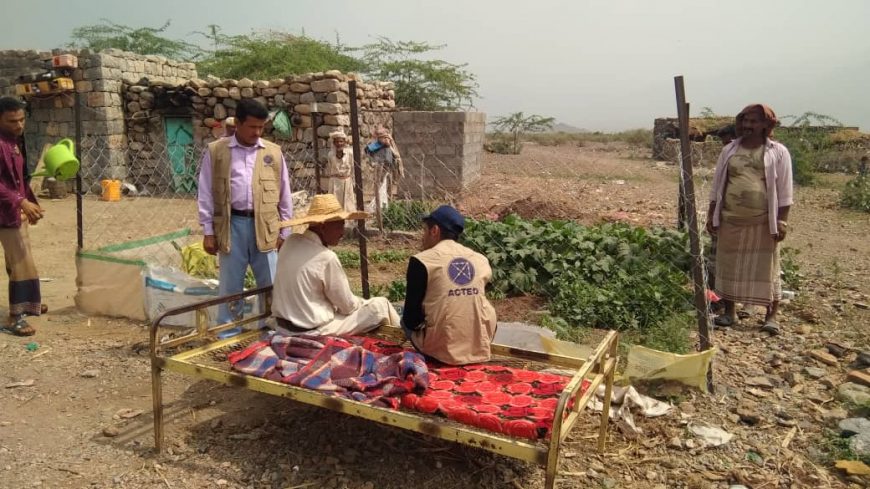
A crisis on all fronts
In the four years since the crisis in Yemen escalated, farmers are among those hit hardest by the conflict. Steeply increasing prices for fuel, seeds, and equipment, as well as a wildly fluctuating currency value means have created a perfect storm for families engaged in agriculture, leading to the failure of many small-farms. This is doubly dangerous: not only does it lead to increased displacement but removing their crops from markets intensifies Yemen’s ongoing hunger crisis.
The war has impacted the prices of everything, including the fuel and food which we need to live, especially with the unavailability of water.
A partnership towards progress
ACTED has partnered with the Yemen Humanitarian Fund (YHF-OCHA) to develop programmes in Raymah Governate aimed at distributing farming equipment and seeds to address the underlying causes of food insecurity and malnutrition in vulnerable households. This programme also provided them with agricultural training courses, equipping them with the key skills they need to thrive in challenging circumstances.
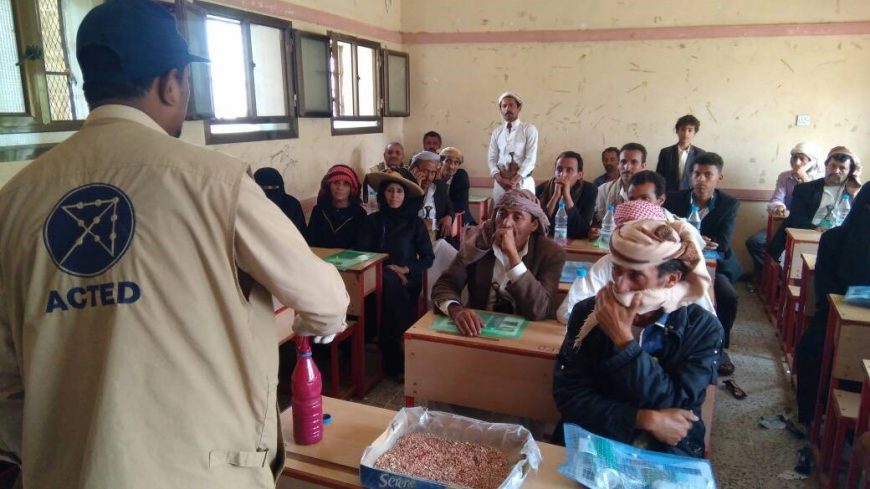
Based on the needs identified through community engagement, ACTED identifed a range of topics and approaches as crucial for helping farmers to improve their yields. These were: the proper preparation of land to allow for cultivation, the importance of irrigation and water resource management, the proper use of fertilizers and pesticides, and the selection and planting of different seed varieties.
Beside teaching us how to select the seeds and how to locally make fertilizer, we also learned new practices and how to protect plants from disease.
Mariam is 40 years old and has been working on her family farm for 28 years. She struggled to support a family through farming under the current conditions, saying: “The war has impacted the prices of everything, including the fuel and food which we need to live, especially with the unavailability of water.” Before the war, Mariam worked for the Ministry of Public Health, but stopped receiving her salary after the outbreak of war. She was thus forced back to the land to support her family. Although they have land and access to limited non-agricultural incomes, Mariam’s family is large and includes disabled members, which combined with persistent malnutrition, intensifies the challenges which they face every day.
The training sessions were excellent. I have benefited from the sessions and amended bad practices I used to apply on the farm.
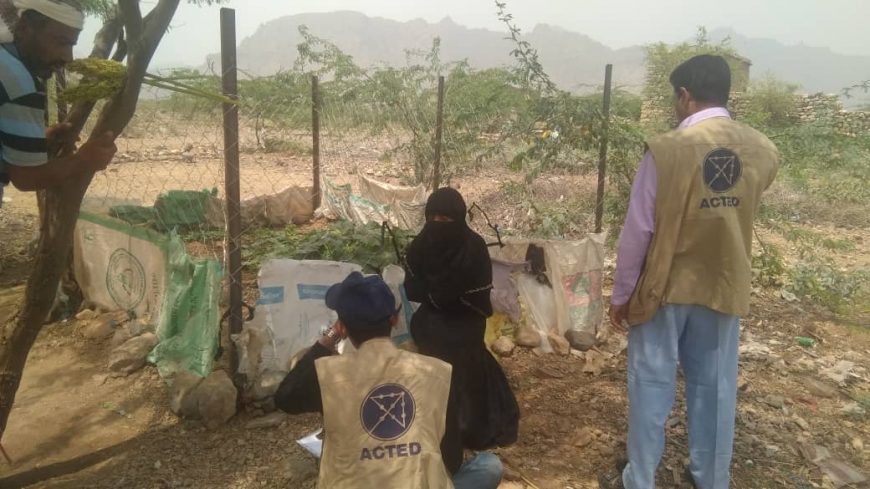
In addition to the trainings ACTED also:
1) Distributed 1,000L water tanks to 1,400 farming families as a means to ensure they could continue crop irrigation in times of high water scarcity.
2) Rehabilitated a water point in Bilad At Ta’am to the benefit of 2,100 people.
3) Reached 1,400 farming household through the distribution of farm tools and seed varieties including: white sorghum, red sorghum, maize, millet, barley, and assorted vegetables.
(Seed varieties were chosen on the basis of their high-nutrient content and short growing times).
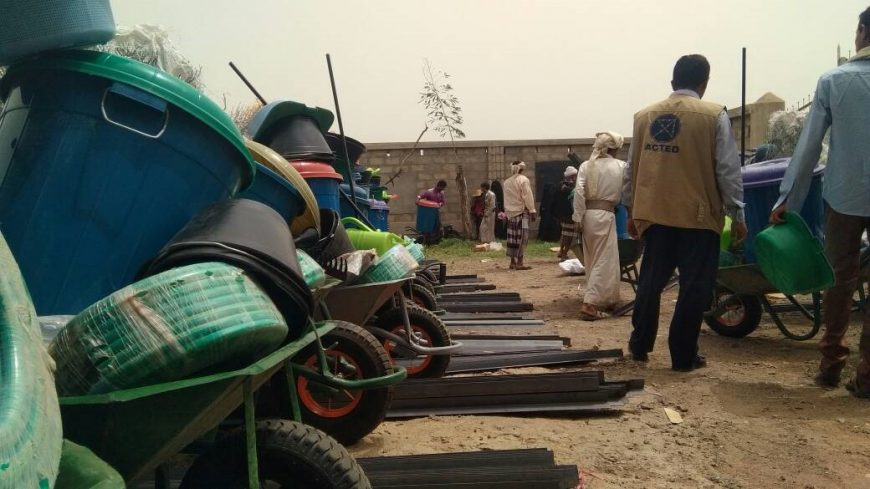
Planting the seeds
Through ACTED’s programme, more than 1,400 farmers received a variety of seeds and agricultural tools, as well as training on best practices for improving crop yields. With these materials and trainings, participants are better equipped to rise to the challenge of supporting themselves, their families, and their communities in Yemen.
There’s no better job than farming, raising livestock and beekeeping. It empowers me, and it strengthens my body and makes me healthier.
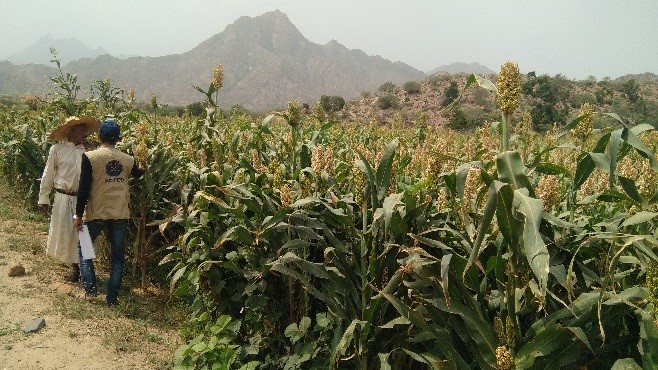
This project was made possible through the support of the Yemen Humanitarian Fund (YHF-OCHA).
